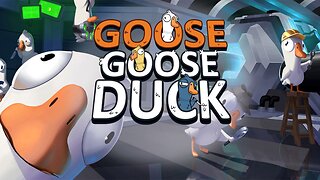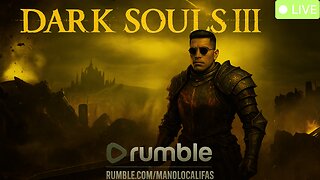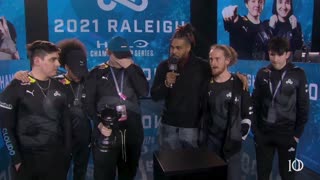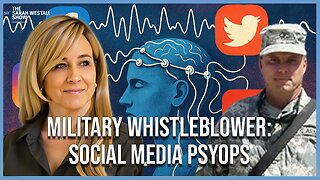Premium Only Content

Is Life Just a Play? The Secrets of Free Will vs. Fate! | Universe | Mind
*Is Life Just a Play? The Secrets of Free Will vs. Fate!*
Is life a carefully scripted performance, or do we have the power to shape our own destiny? In this video, we dive into these big questions, inspired by great thinkers like Marcus Aurelius, Jean-Paul Sartre, and Carl Jung. Drawing from Stoicism, existentialism, and modern psychology, we’ll explore how we navigate between fate and free will, the roles we play, and how we create meaning in life.
In this episode, you’ll learn:
• How Marcus Aurelius viewed life as a stage where we control our reactions, even when events are beyond our control.
• Jean-Paul Sartre’s existential belief that life has no script and it’s up to us to create our own meaning.
• Carl Jung’s idea of synchronicity—moments in life that feel like more than coincidence—and how our unconscious desires might be shaping the story.
• The ancient Greek idea of fate with the Moirai controlling our destinies, and how philosophers like Nietzsche believed in breaking free to shape your own path with the "will to power."
• How we wear "masks" in life, as described by Søren Kierkegaard and Simone de Beauvoir, and the importance of living authentically.
Through these reflections, you’ll gain insights into:
• Balancing the roles society gives us with discovering our true selves.
• Erik Erikson’s stages of identity development and how they affect our growth.
• The influence of time on our actions, drawing from Heidegger’s concept of "Being-toward-death" and Frankl’s view that meaning comes from how we respond to life’s challenges.
Join me as we explore life’s play, its masks, its mysteries, and the endless possibilities we have to shape our story. Don’t forget to like, subscribe, and share your thoughts below—how do you see your role in this grand play?
*Content:*
• Act I: The Grand Stage of Existence
• Act II: The Script and Its Questions
• Act III: The Masks We Wear
• Act IV: The Audience and the Director
• Act V: The Role of Time in the Play
• Act VI: The Dance of Free Will and Destiny
• Act VII: The Play of Relationships
• Act VIII: The Cosmic Stage
• Act IX: The Curtain Call
• Act X: The Legacy We Leave Behind
• Act XI: The Mystery of Meaning
• Act XII: The Infinite Possibilities of the Play
*Music:* Background Music and SFX by @conzientia
*About Conzientia:* Welcome to Conzientia, where we explore the depths of human consciousness, life’s mysteries, and our connection to the greater cosmos. In this channel, we dive deep into philosophical, spiritual, and existential themes to help you find purpose, meaning, and awareness in your own life.
Feel free to engage, comment, and share your thoughts—we’re all actors in this cosmic play!
*Key Concepts:*
1. Stoicism – A philosophy focused on controlling one’s reactions to uncontrollable events.
2. Fate vs. Free Will – The tension between following a predetermined path and having autonomy.
3. Existentialism – The belief that life has no inherent meaning, and individuals must create their own.
4. Synchronicity – Jung’s concept of meaningful coincidences.
5. Moirai – Greek mythology's spinners of destiny.
6. Übermensch – Nietzsche’s concept of the "Overman," transcending societal norms.
7. Individuation – Jung’s concept of integrating different parts of the psyche to achieve wholeness.
8. Will to Power – Nietzsche’s idea of shaping one’s own destiny through strength of will.
9. Absurdism – Camus’ concept that life’s inherent meaninglessness must be confronted and transcended.
10. Dharma – A concept in Hinduism signifying duty, responsibility, and purpose within the cosmic order.
11. Being-toward-death – Heidegger’s idea that awareness of mortality gives life meaning.
12. Kalachakra – Hindu concept of the wheel of time.
13. Gaia Hypothesis – James Lovelock’s idea that Earth functions as a self-regulating organism.
14. I-Thou vs. I-It Relationships – Martin Buber’s distinction between deep, authentic connections and transactional ones.
15. Attachment Theory – John Bowlby’s concept on how early relationships influence future connections.
16. Generativity – Erik Erikson’s idea of leaving a legacy by nurturing things that outlast us.
#stoicism #fate #nietzsche #marcusaurelius #jeanpaulsartre #freewill
-
 2:04:21
2:04:21
vivafrei
23 hours agoEp. 278: D.C. Peace Wave! Big Tish & Nipple Judge SPANKED! "Maryland Man" Trafficker FREE & MORE?
57.8K57 -
 LIVE
LIVE
RaikenNight
1 hour agoGoose Goose Duck then I am Building MInis
72 watching -
 11:52
11:52
Exploring With Nug
2 hours ago $0.07 earnedWhat’s Hiding Under This Dallas Lake We Found a Vehicle!
14.6K3 -
 LIVE
LIVE
Phyxicx
3 hours agoRocket League with Rance tonight! - 8/24/2025
43 watching -
 LIVE
LIVE
ManoloCalifas
51 minutes ago🔴 LIVE - DARK SOULS 3 SEAMLESS CO-OP
27 watching -
 2:59:09
2:59:09
Barry Cunningham
8 hours agoBREAKING NEWS: PRESIDENT TRUMP SET TO TAKEOVER CHICAGO AND BOSTON!
33K28 -
 2:58:27
2:58:27
LumpyPotatoX2
3 hours agoSunday Funday on HellDivers - #RumbleGaming
19.5K -
 3:11:52
3:11:52
Esports Awards
6 hours agoEsports Awards: Decade Awards 2025
54.1K4 -
 1:02:58
1:02:58
Sarah Westall
4 hours agoMILITARY WHISTLEBLOWER: How Social Media Military Level Psyops are Manipulating You w/ Patrick Bergy
29K6 -
 30:41
30:41
Stephen Gardner
3 hours ago🔥WHITE HOUSE GETS UNEXPECTED BIG WIN!
27.9K18